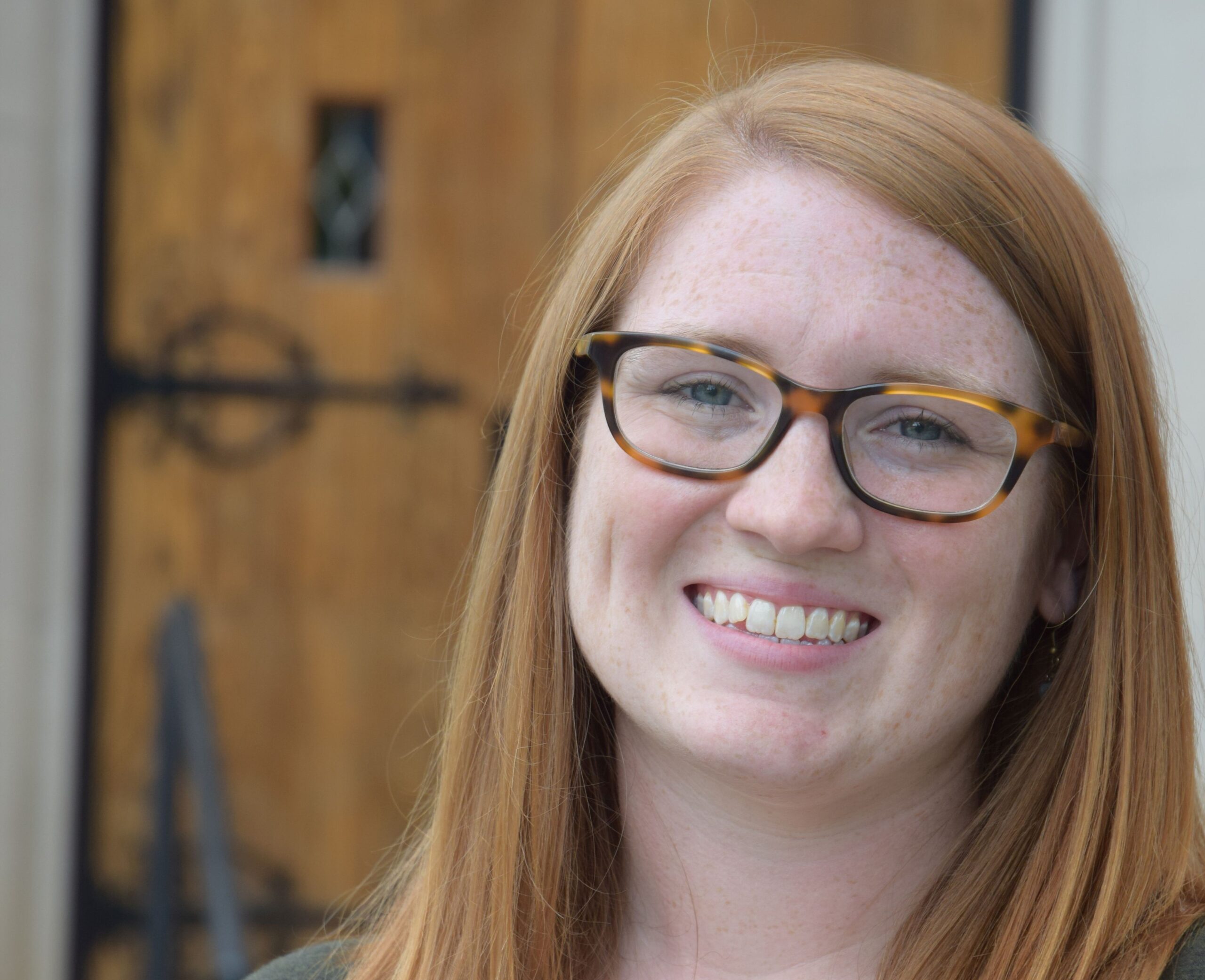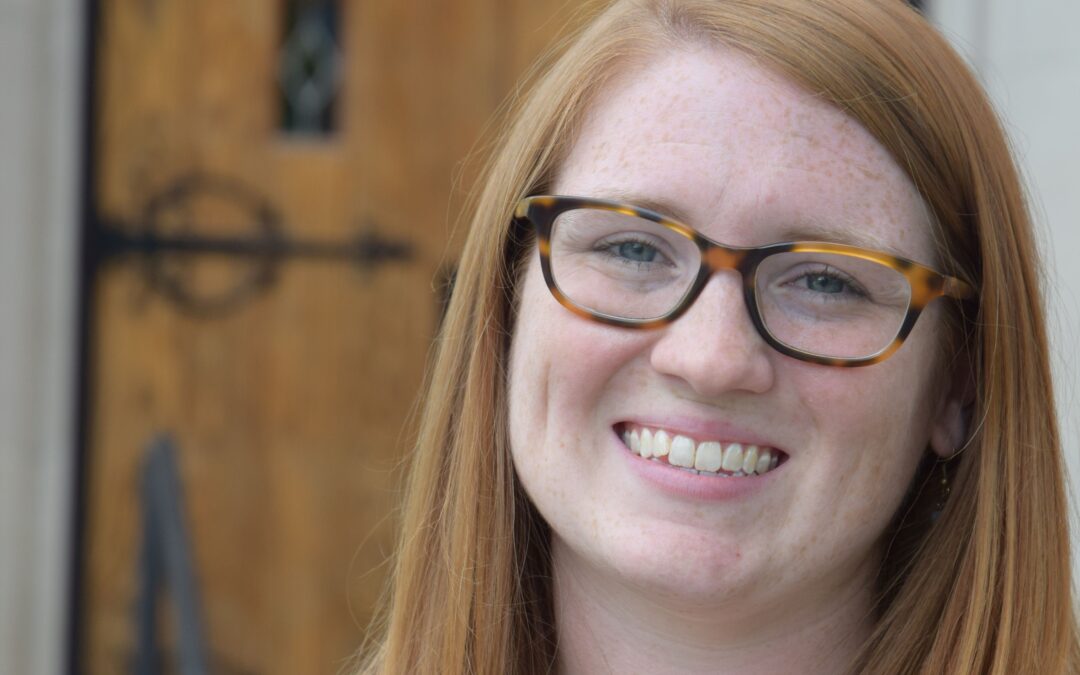 Practice Spiritual Disciplines: “Try New Spritual Disciplines”
Practice Spiritual Disciplines: “Try New Spritual Disciplines”
April 10, Palm Sunday, 2022,
Rev. Emily Wilmesherr
Decatur Presbyterian Church
Hebrews 4:14-16 1
Throughout the season of Lent, we looked at different disciplines that Jesus kept: Fasting, Listening to God, Praying, Embracing Simplicity, and Unplugging as ways to draw closer to God. Today is the last Sunday of Lent and begins Holy Week, marking Jesus’ final days on earth. While it is the last day of the spiritual disciplines series, I hope that it has only begun a journey for you in experimenting with different ways to draw close to God.
The God we meet in Scripture is always at work in new and surprising ways, providing water where before there was only dry sand, and new life where death prevailed. We see God experiment with new ways to draw the people closer to God: covenants, prophets, priests, kings, exodus, law, exile, a baby in
a manger, miracles, resurrection, the Holy Spirit, and communities of faith. Just as God experimented with different ways to draw close to people, we are invited to try different disciplines throughout our life that draw us closer to God.
All the way back on Ash Wednesday, we introduced spiritual disciplines as a way of keeping company with Jesus. I shared a metaphor by Henri Nouwen where he talked about drawing close to God is like discovering a well in the desert. Once you have touched wet ground, you want to dig deeper. Nouwen develops the metaphor even more that speaks vividly to the way that spiritual disciplines function in our lives he says: “The word ‘digging’ might not be the best word since it suggests hard and painful work that finally leads me to the place where I can quench my thirst. Perhaps all we need to do is remove the dry sand that covers the well. There may be quite a pile of dry sand in our lives, but the One who so desires to quench our thirst will help us to remove it.”
Spiritual disciplines help us to remove the dry sand of our lives. They set aside space to be with God, space where you can just be. Finding places where I have felt I can truly be myself even before God has not been easy.
I was the oldest in my family, always wanting to please adults and really please everyone. I wanted to always do the right thing and have everything together so that I could support and care for others. But this is a burden I placed on myself that I was not meant to carry, no human is meant to carry. Often the anxiety, worry, exhaustion, and frustration would silently build and break with a big cry. I always hoped that big cry wouldn’t come or if it did, it would come while I was alone. This cry was not just a few tears but that heavy cry that you feel all over your body, the one where your eyes burn, and there is nothing you can do to stop it. I felt ashamed of this part of me. I felt it was out of control and not worthy to be seen by anyone, even God.
Things began to shift while I was in my last semester of seminary. My concerns for completing a long list of assignments to graduate and worrying about the future were out of control. I decided to take one day to go to the Monastery of the Holy Spirit in Conyers all alone. When I arrived I slowly walked to the abbey, a little hesitant about what I might discover in my quiet time with God. I sat down on the hard pew in the cool, stone chapel with my mind racing to all the things I should be doing. I took three deep breaths to center myself and all the sudden I burst into tears. I lost track of how long I sat and sobbed but I can tell you that I felt God begin to help me remove all of the dry sand that had piled up in my life. It was the first time I felt God’s Spirit embrace me and sit in the space with me, in all my emotions. I no longer felt ashamed instead I felt deeply loved.
Have you ever been in a space like this? A space where you were able to just be, be all that you were, completely vulnerable, fully loved?
In the scripture today, Jesus is described as our high priest. The task of the priest is to approach God on behalf of the people AND approach the people on behalf of God. Writer wants the reader to move past fearful prayers, well-formed prayers, or distant prayers towards, towards what Tom Long describes as “a way of praying that storms the gates of heaven with honest and heartfelt cries of human need.” We don’t have to have all the right words to say or put away the embarrassing parts of us before coming before God. We are encouraged to approach God’s throne with confidence. What if we approached prayer like a child who cries out trusting they will be heard and comforted. Bold prayer ultimately rests on what we know and believe about God; who we trust God to be. The writer reminds us that if we confess Jesus to be God’s Son, one who intercedes for us, we can boldly approach God in prayer.
Jesus experienced all of human life: joy, temptation, sadness, loneliness, frustration, grief and so much more so he knows, understands, and has experienced the array of human life. When we look at Jesus, we see God stooping down from the holy heights to bear our griefs and carry our sorrows. We see that God’s love for us is so great, that God came down from heaven through Jesus to live among us and die for us. If we believe this to be true, we can approach the throne of grace with confidence.
As I reflect on Jesus’ entrance to Jerusalem, I think about the boldness it took to do this journey. I believe that the spiritual disciplines that Jesus engaged in: fasting, listening, praying, simplicity, unplugging gave him the courage to enter Jerusalem and face what was waiting there. Jesus kept his mission before him, even when things were getting difficult. He knew that his walk through Jerusalem was the path leading to his death, yet he journeyed on. That’s how deep his love for humanity goes, its agape kind of love. Love that is unconditional and sacrificial. Love that would parade into the city on a donkey, challenging the political powers. Love that would endure suffering and death so that God could draw close to God’s children. This is the greatest love the world has ever known.
Those who lined the streets of Jerusalem that day were no strangers to Jesus’ ministry. Even if they had not seen him perform miracles with their own eyes, they had heard the accounts. They believed the prophets words that a Savior would come and they hoped beyond hope that was Jesus. On that day, people risked everything to prepare a way, praise him, and beg for him to save them. They approach Jesus with confidence. They laid all they had at his feet, trusting he would hear them and was the one God sent to save them.
While some of these same people will turn from shouts of “Hosanna” to shouts of “crucify him” in
the days ahead, we have a chance to respond to Jesus’ love differently. We can embrace the truth that Jesus is the Son of the Living God. Believe that deep within your bones and let that love transform you and shape you into returning that kind of love for God through your actions. Go before God with confidence and love the world with boldness. This will require sacrifices and will be difficult. We are not called to be Jesus, but we are called to love like Jesus. We will fall short and we will not do it right most of the time, but we can live in the grace that God offers and extend that grace to one another.
Spiritual disciplines create holy space for us to remove the dry sand of our lives; space to draw near to God and keep company with Jesus. While we have shared a variety of disciplines over the last 6 weeks this is not an exhaustive list. Think about when you have felt close to God. What were you engaged with? Perhaps you were in total silence, alone in a space. Maybe it is when you are in conversation with a friend where you can be yourself. What about when you are engaging your body in prayer through exercise, walking in nature, or dancing. Maybe it is when you sing or hear others make music. I encourage you to come back to the things that deepen your relationship with God again and again.
Try new disciplines when you are feeling dry and disconnect. God wants to help remove the dry sands and quench your thirst, you are not a burden to God. Remember that Jesus knows what it is like to be human and because of Jesus we can take all the concerns of human life before God with confidence that God sees us, hears us, and loves us beyond our understanding.
Thanks be to God!
Rev. Emily Wilmesherr
Decatur Presbyterian Church
Decatur, Georgia
April 10, 2022 Palm Sunday


